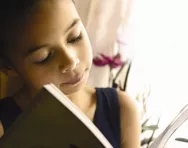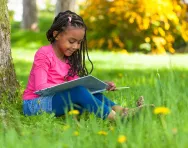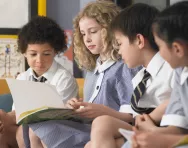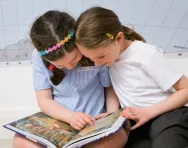Important update from TheSchoolRun
For the past 13 years, TheSchoolRun has been run by a small team of mums working from home, dedicated to providing quality educational resources to primary school parents. Unfortunately, rising supplier costs and falling revenue have made it impossible for us to continue operating, and we’ve had to make the difficult decision to close. The good news: We’ve arranged for another educational provider to take over many of our resources. These will be hosted on a new portal, where the content will be updated and expanded to support your child’s learning.
What this means for subscribers:
- Your subscription is still active, and for now, you can keep using the website as normal — just log in with your usual details to access all our articles and resources*.
- In a few months, all resources will move to the new portal. You’ll continue to have access there until your subscription ends. We’ll send you full details nearer the time.
- As a thank you for your support, we’ll also be sending you 16 primary school eBooks (worth £108.84) to download and keep.
A few changes to be aware of:
- The Learning Journey weekly email has ended, but your child’s plan will still be updated on your dashboard each Monday. Just log in to see the recommended worksheets.
- The 11+ weekly emails have now ended. We sent you all the remaining emails in the series at the end of March — please check your inbox (and spam folder) if you haven’t seen them. You can also follow the full programme here: 11+ Learning Journey.
If you have any questions, please contact us at [email protected]. Thank you for being part of our journey it’s been a privilege to support your family’s learning.
*If you need to reset your password, it will still work as usual. Please check your spam folder if the reset email doesn’t appear in your inbox.
Listen and learn: why audiobooks are great for your child

If you’ve got some long journeys planned over the holiday period, chances are you’ve already considered investing in some story CDs to stave off boredom. But audiobooks aren’t just useful on the move; they’re also a brilliant tool for boosting your child’s reading skills.
‘Listening to a story can be valuable for all sorts of reasons,’ says Irene Picton of the National Literacy Trust. ‘One benefit of audiobooks is that children have the opportunity to hear speech patterns and rhythms that they might miss in print. They teach them about voice and expression, which can help with their own speaking and articulation.’ Dialects, accents and humour are brought to life, providing children with a model for reading aloud.
Growing better readers with audiobooks
Audiobooks can improve your child’s reading by increasing their exposure to a range of vocabulary and syntax and helping them to engage intellectually with the content.
According to research from the National Literacy Trust, listening to an audiobook requires the same cognitive skills as reading in print and supports language comprehension skills and the ability to understand and retain information in the same way reading a book does. Read-along book and CD sets can also help them with the link between the printed and spoken word. And with research suggesting that children’s listening skills are becoming poorer, with a knock-on effect on academic success, audiobooks could help your child become a better listener.

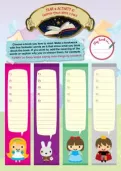
Claim A FREE Book Reviews Activity Pack!
- A huge collection of creative writing & reading comprehension resources
- Explore texts, deepen understanding, share opinions
- For Year 1 to Year 6
Audiobooks also enable your child to discover stories that exceed their actual reading age. ‘Children develop literacy at different rates, but audiobooks can help them access stories that would be too advanced for them to read,’ says Laurence Howell of audiobook specialists Audible. ‘It’s a wonderful way to open up great literature to children.’
Using audiobooks to overcome reading struggles
All children can benefit from listening to audiobooks, but they may be of particular advantage to reluctant readers. ‘If a child finds decoding or comprehension difficult, audiobooks can make literature more accessible,’ says Irene. ‘They get to hear the story in real time, rather than it becoming disjointed as they struggle through the text. It gives them the opportunity to become absorbed in the book.’
Audiobooks can also help children who find reading tedious. ‘They’re great for restless children because they can be doing something else at the same time,’ Irene explains. ‘It’s quicker to listen to a story than to read it yourself, so they get a faster pay-off.’ Plus University of Memphis research shows that we’re more likely to persevere with an audiobook that doesn’t immediately grab us than we would with a book, so they could help build stamina for stories if your child loses interest in books quickly.
Listen with mother (and father)
So when and how can you use audiobooks? ‘You can listen any time: in the car, the bath, at bedtime to help your child wind down, or just have one on in the background during the day,’ Irene says. ‘Children go through phases when they’re less interested in reading, so listening to audiobooks can keep up their exposure to literature.’
But while audiobooks can buy you some peace and quiet, listening with your child is beneficial, too. ‘It can be a good bonding experience, and improve your own storytelling skills,’ Irene says. Research also suggests that to help your child get the most from an audiobook, it’s important to ask questions about the story, boosting critical thinking skills.
There’s a vast range of children’s audiobooks available on CD or to download.
- Libraries are a good (and cost-effective) source of story CDs.
- You can also download audiobooks – some free of charge – onto phone, tablet or computer from websites such as Audible and iTunes.
- LibriVox offers a large collection of free audiobooks of much-loved children's books (fairy tales and classic stories like The Railway Children and The Adventures of Huckleberry Finn) to download.
- Puffin's Roald Dahl audio app is a library of new recordings of 19 of Roald Dahl’s classic children’s titles read by celebrity readers including Kate Winslet and David Walliams, with brand-new sound effects. The first chapter of every book is free, so you can sample before you buy.
- Some children’s books contain QR codes that, when scanned with a smartphone, link to the audio version and interactive features.
Okay, so audiobooks might have slightly fusty connotations, but children’s versions are far from boring, thanks to celebrity narrators such as Stephen Fry, Anne Hathaway and Matt Lucas. ‘A good narrator can transform the story, and your child’s understanding and enjoyment of it,’ says Laurence. ‘There’s something about being read aloud to that never fails to be comforting, regardless of your age.’
Best children’s audiobooks
Harry Potter and the Philosopher’s Stone by JK Rowling, narrated by Stephen Fry (£20.52, Cover to Cover)
The Boy in the Dress by David Walliams, narrated by David Walliams and Matt Lucas (£9.99, Harper Collins)
The Twits by Roald Dahl, narrated by Simon Callow (£9.99, Puffin)
The Lion, the Witch and the Wardrobe by CS Lewis, narrated by BBC Radio 4 cast (£10.20, BBC Audiobooks)
The Wonderful Wizard of Oz by L Frank Baum, narrated by Anne Hathaway (from £3.99, Audible)
Matilda by Roald Dahl, narrated by Kate Winslet (£4.99, Roald Dahl audio app)
Peter Pan: The Boy Who Wouldn’t Grow Up by J.M. Barrie, narrated by an all-star cast including Kit Harington, Joanna Lumley, Helen McCrory and Jennifer Saunders (£11.99, Audible, sold in aid of The Peter Pan Moat Brae Trust and Great Ormond Street Hospital Children’s Charity)
The National Literacy Trust has a range of free resources that support families to share audiobooks at home.
Audible offers unlimited streaming of thousands of titles for kids and families as part of a paid membership (free trial then £7.99 a month).
After a 14-day free trial children can listen to an unlimited number of kids' audiobooks on the CloudAloud app for £3.99 a month.


